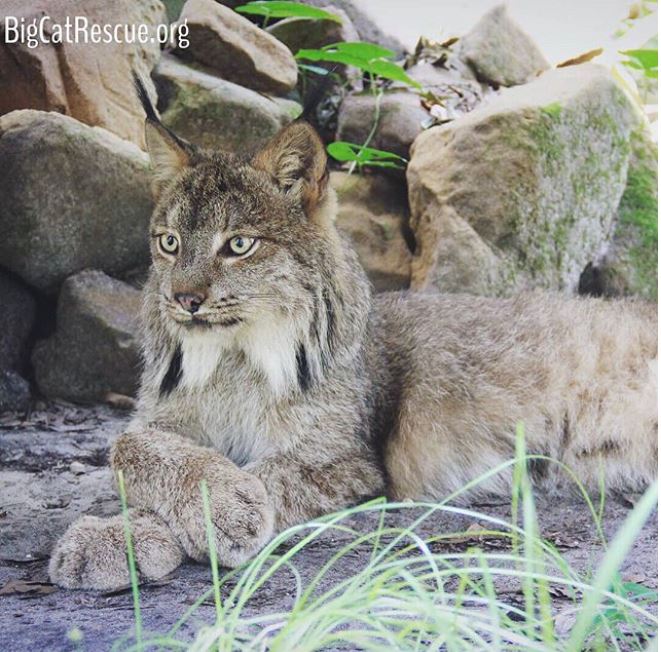Operation Cat Tale Exposes Illegal Sales of Ocelots by Calling it a Donation
Five Defendants From Oregon, California, Texas and New York
Charged For Illegal Trafficking in Endangered Species;
One Charged For Lying To Federal Officials

5 Defendants Illegally Sold and Purchased Ocelots and Lied To Cover Up The Sales
3 Others Issued Civil Fines by the United States Fish and Wildlife Service
Click here to view the Map
PORTLAND, OREGON – Five defendants from Oregon, California, Texas and New York have been charged with various crimes related to the illegal sale of ocelots, a rare spotted cat protected under the federal Endangered Species Act. Three others, from California, Pennsylvania and Washington, were issued civil fines for participation in illegal trafficking. The investigation, dubbed “Operation Cat Tale,” has netted a total of nine targets thus far, including the prosecution of Portlander Deborah Walding, who was convicted of illegal ocelot trafficking and sent to prison in 2006.
As few as 70 ocelots are known to remain in the wild in the United States, most of them on the Laguna Atascosa National Wildlife Refuge in south Texas. The large, nocturnal cats are endangered throughout their range in Texas and Central and South America, mostly as a result of habitat destruction and illegal trafficking in pelts. They are protected by national and international laws.
Ocelots have been listed as endangered under the Endangered Species Act since 1972. The Endangered Species Act (“ESA”) establishes a near-total ban on the sale of endangered animals. The purpose of the blanket prohibition is to end the commercialization of endangered species. When endangered wildlife are commercialized – that is, when animals or animal parts are sold – the commercialization encourages the development of a blackmarket for the animals and parts, which in turn creates further incentives for poachers to illegally take endangered species from their habitat. Poaching has already decimated certain species and threatens to do the same to many others.
The investigation in this case uncovered an aggressive, nationwide effort to sell endangered animals illegally and cover up the illegal sales through lies and deceit. In each of the five criminal cases announced today, the defendant is alleged to have taken affirmative steps to cover up the illegal nature of the sale by lying to federal authorities. Gifts of endangered species are not barred by law. In each of these five cases, the defendant completed federally-required forms claiming that the ocelot was a gift to the purchaser, when in fact it was sold. In each case, the ocelots were sold for thousands of dollars – many at a cost of $5,000 per animal.
Two of the ocelots sold as part of the illegal sales died while under care of the purchaser, although no claims of mistreatment are alleged. Five ocelots have been or will be seized by the U.S. Fish and Wildlife Service, including the two dead animals.
“The Endangered Species Act is critical in our effort to save treasures like the ocelot and protect biodiversity, and we will undertake vigorous enforcement against people who illegally commercialize threatened and endangered animals,” said U.S. Attorney Karin J. Immergut. “The Endangered Species Act has proven its effectiveness beyond doubt. For example, bald eagles, our national symbol, faced the threat of extinction not long ago” now, thanks in large part to the Endangered Species Act, bald eagles are thriving throughout their habitat in the United States.”
Paul Chang, Special Agent in Charge of Law Enforcement in the Fish and Wildlife Service’s Pacific Region, said, “The successful results of this investigation represent the strong commitment and teamwork that exists with our counterparts around the country and the U.S. Attorney’s Office. This collaborative work illustrates how we can make a difference in putting a halt to the desecration of our precious wildlife resources.”
Four of the five defendants in the cases announced today have reached plea agreements with the United States. A “Fact Sheet,” attached, provides a brief synopsis of each case. An indictment is only an allegation of criminal activity. The defendant is presumed innocent until proven guilty in a court of law.
The case was investigated by the U.S. Fish and Wildlife Service and is being prosecuted by Assistant U.S. Attorneys Dwight C. Holton and Amy E. Potter. Further inquiries can be directed to AUSA Holton at 503-727-1128, Diane Peterson, Public Information Officer, U.S. Attorney’s Office,at 503-727-l066, or Joan Jewett, U.S. Fish and Wildlife Service, at 503-231-6211.
OPERATION CAT TALE:
Case Fact Sheet
United States v. Isis Society For Inspirational Studies, Inc., a/k/a the “Temple of Isis”
The Isis Society for Inspirational Studies, also known as the “Temple of Isis,” is a California corporation located in Geyserville, California. The Temple of Isis is charged with conspiring to violate the Endangered Species Act through the illegal sale of six ocelots to purchasers in Texas, Florida, Oregon and Minnesota. Throughout the course of the conspiracy, the Information alleges, the Temple of Isis agreed with ocelot purchasers to mischaracterize the sale of ocelots as “donations,” and to mischaracterize the payments for these ocelots as “contributions” to charitable organizations affiliated with the defendant, including the “Temple of Isis” and the “Isis Oasis Sanctuary.” The purchasers falsified federal forms to maintain the “donation” cover story.
The Temple of Isis has entered a plea agreement with the United States whereby it admits its participation in the charged conspiracy and further that it took steps to cover up the sales by agreeing with purchasers to mischaracterize the sales as “donations.” The Temple of Isis has further agreed to plead guilty as charged.
The parties have agreed to recommend to the Court that the Temple of Isis be fined $60,000 – twice the value of the illegally sold ocelots – and be placed on federal probation for a period of two years. (The recommendation of the parties is not binding on the Court; rather, it is merely a recommendation. Sentencing is solely the responsibility of the Court.)
The agreement also requires the Temple of Isis to cooperate fully with the investigation.
United States v. Great Cats of the World, Inc.
Great Cats of the World is an Oregon corporation located in Cave Junction, Oregon, which formerly operated in Minnesota under the name “Center for Endangered Cats.” The Information filed in this case alleges that the Center for Endangered Cats purchased an ocelot from the Temple of Isis and falsified a federal form by claiming that the ocelot had been ‘donated,’ when in fact the Center for Endangered Cats paid thousands of dollars for the ocelot.
Great Cats of the World has entered a plea agreement with the United States whereby it agrees to plead guilty as charged, admits that it purchased an ocelot illegally, and admits that it took steps to cover up the sale, falsifying a federal form to claim that the sale was a “donation.”
The parties have agreed to recommend that Great Cats of the World pay a fine of $10,000 and be placed on federal probation for a period of one year. The defendant has also agreed to forfeit the illegally purchased ocelot. The agreement also requires Great Cats of the World to cooperate fully with the investigation.
United States v. Amelia Rasmussen
Amelia Rasmussen is a resident of Nixon, Texas. The Information filed in this case alleges that Rasmussen purchased two ocelots from the Temple of Isis and falsified a federal form by claiming that the ocelots had been “donated” to her, when in fact she paid thousands of dollars for the ocelots.
Rasmussen has entered a plea agreement with the United States whereby she agrees to plead guilty as charged and admits that she purchased the ocelots illegally, and further that she took steps to cover up the sale by falsifying a federal form, claiming that the sale was a “donation.” The agreement also requires Rasmussen to give truthful, complete information and cooperate fully with the investigation.
The parties have agreed to recommend that Rasmussen pay a fine of $15,000 and be placed on federal probation for a period of one year.
United States v. Jackie Sinott
Jacke Sinott is a resident of Silverton, Oregon. The Information filed in this case alleges that Sinott purchased an ocelot from the Temple of Isis and falsified a federal form by claiming that the ocelot had been “donated” to her, when in fact she paid thousands of dollars for the ocelot.
The United States and Sinott have agreed to enter a pre-trial diversion agreement which requires her to pay a fine of $10,000 and take responsibility for her actions. In exchange, if defendant obeys all state and federal laws for a period of six months and meets other conditions, the government will move to dismiss the charges against her.
United States v. Glenn Donnelly
The charges against Donnelly allege that he bought two ocelots from Deborah Walding in April 2002 in violation of the Endangered Species Act and the Lacey Act. The Lacey Act makes it illegal to receive or transport an animal sold in violation of the Endangered Species Act. Walding was convicted of illegal ocelot trafficking in 2005. The Indictment against Donnelly also alleges that Donnelly falsified a federal form by claiming that the sale was a “donation.”
An indictment is only an allegation of criminal activity. The defendant is presumed innocent until proven guilty in a court of law.
Donnelly has been summoned to answer the charges against him on August 4, 2006.
The Civil Fines
Three people have been fined by the U.S. Fish and Wildlife Service as a part of this investigation.
§ Konstantin Lyavdansky of Kingston, Pennsylvania was fined $2,075 for selling a coat made of ocelot fur to Deborah Walding through Ebay
§ Jeannette Giacinto of Tarzana, California was fined $525 for illegal delivery of an endangered species, namely, an ocelot, from California to Washington
§Collette Griffiths of Vancouver, Washington was fined $525 for illegal transportation of an endangered species, namely, an ocelot, from California to Washington
Contacts
Dwight Holton, Assistant U.S. Attorney, Portland, Oregon: 503-727-1128
Diane Peterson, PIO, U.S. Attorney’s Office, Portland, Oregon: 503-727-1066
Joan Jewett, U.S. Fish and Wildlife Service, Portland, Oregon: 503-231-6211
https://www.fws.gov/news/newsreleases/showNews.cfm?newsId=D0E8A11A-F6CE-3C06-8EFD6E4A6795F90D







Glad they were caught! Pure evil… I'm curious where they are now & if they learned from their mistakes or if they tried again..